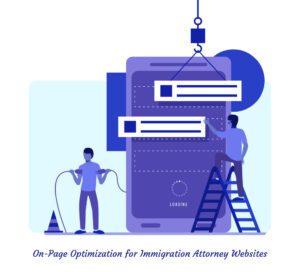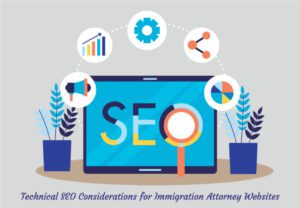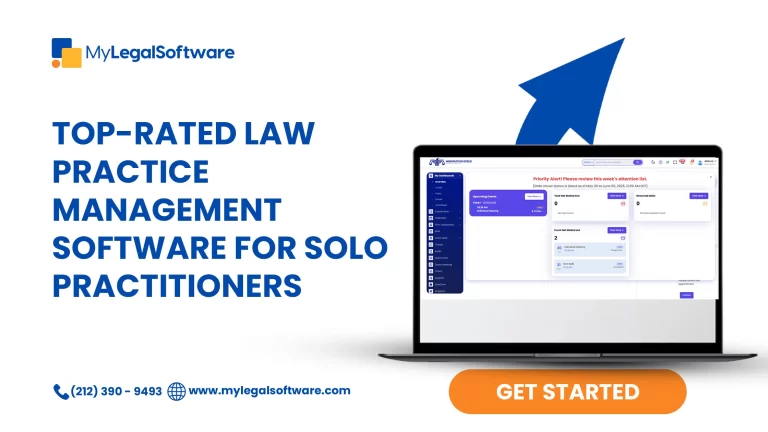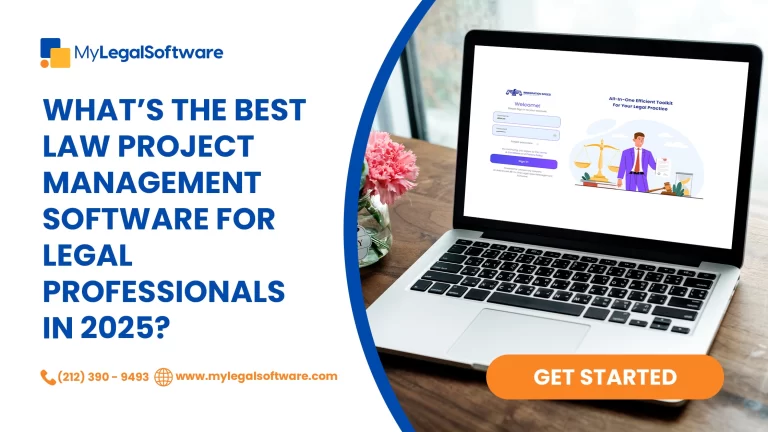Search engine optimization (SEO) plays a pivotal role in the success of businesses across various industries, including immigration law firms. By implementing effective SEO strategies, immigration attorneys can enhance their online visibility, increase organic traffic to their websites, and attract more potential clients.
In this article, we will explore the importance of SEO for immigration attorneys and provide a comprehensive overview of key SEO components, techniques, and benefits specific to this field.
How to Understand SEO for Immigration Attorneys
SEO involves optimizing a website’s content, structure, and online presence to improve its visibility in search engine results pages (SERPs). Also, by understanding how search engines operate and what factors influence rankings, immigration attorneys can strategically position their websites to attract relevant traffic and potential clients.
What are the Benefits of Implementing SEO Strategies for Immigration Attorneys:
Benefits associated with a good SEO strategy includes but not limited to:
- Increased visibility and brand exposure in search engine results
- Improved organic traffic, leading to a higher number of potential clients
- Enhanced credibility and trustworthiness in the eyes of search engines and users
- Cost-effective long-term marketing strategy compared to traditional advertising
- Competitive advantage over immigration law firms that neglect SEO practices
What are the Key Components of SEO:
Keyword Research and Optimization:
Identifying and incorporating relevant keywords and phrases into website content, titles, and meta tags to align with user search queries.
On-Page Optimization:
Optimizing website structure, navigation, content, headers, internal links, and multimedia elements to enhance user experience and search engine crawlability.
Off-Page Optimization:
Building high-quality backlinks, engaging in guest blogging, leveraging social media platforms, and utilizing online directories to enhance website authority and reputation.
Technical SEO Considerations:
Optimizing website loading speed, implementing XML sitemaps and robots.txt files, utilizing structured data markup, ensuring SSL certificates, and focusing on mobile optimization.
Keyword Research and Optimization for Immigration Attorneys
Identifying Relevant Keywords and Phrases:
Conducting thorough research to understand the search intent of potential clients and identify keywords and phrases that align with their needs and queries.
Tools and Techniques for Keyword Research:
Utilizing keyword research tools such as Google Keyword Planner, SEMrush, and Moz Keyword Explorer to identify high-volume and low-competition keywords for immigration-related services.
Incorporating Keywords into Website Content, Titles, and Meta Tags:
Strategically incorporating targeted keywords into website content, page titles, meta descriptions, and header tags to improve relevance and search engine rankings.
Optimizing Content for Local Search:
Implementing local SEO strategies by including location-specific keywords, optimizing Google My Business listing, ensuring NAP consistency across online directories, and managing online reviews and reputation.
On-Page Optimization for Immigration Attorney Websites
Optimizing Website Structure and Navigation:
Ensuring a user-friendly website structure, easy navigation, and intuitive site architecture to enhance user experience and search engine crawlability.
Creating High-Quality, Engaging, and Informative Content:
Producing original and informative content that addresses the needs and concerns of potential immigration clients, positioning the law firm as an authoritative resource.
Utilizing Header Tags, Bullet Points, and Internal Links:
Utilizing header tags (H1, H2, etc.), bullet points, and internal links to organize content, improve readability, and enhance user experience and SEO performance.
Optimizing Images and Multimedia Elements:
Optimizing image alt tags, file names, and captions to improve accessibility and search engine visibility. Compressing images to improve website loading speed.
Ensuring Mobile-Friendliness and Responsive Design:
Designing websites to be mobile-friendly and responsive, ensuring optimal user experience across different devices and screen sizes.
IV. Off-Page Optimization for Immigration Attorney Websites
Building High-Quality Backlinks from Reputable Sources:
Earning backlinks from authoritative websites, legal directories, and reputable sources within the legal industry to enhance website authority and rankings.
Guest Blogging and Content Partnerships:
Collaborating with industry influencers and relevant publications to contribute guest articles and build brand awareness, authority, and backlinks.
Social Media Engagement and Promotion:
Utilizing social media platforms to engage with the target audience, share valuable content, promote blog articles, and generate social signals for search engine visibility.
Online Directories and Local Citations:
Ensuring consistent and accurate information (NAP) across online directories, such as Yelp, Avvo, and Justia, to improve local search visibility and credibility.
Technical SEO Considerations for Immigration Attorney Websites
Website Loading Speed Optimization:
Optimizing website loading speed through techniques such as browser caching, image compression, minimizing CSS and JavaScript files, and using content delivery networks (CDNs).
XML Sitemaps and Robots.txt Optimization:
Creating XML sitemaps to help search engines discover and index website pages effectively. Optimizing the robots.txt file to control search engine crawling and access to specific website sections.
Structured Data Markup and Schema.org Implementation:
Implementing structured data markup using schema.org vocabulary to enhance search engine understanding of website content and enable rich snippets in search results.
SSL Certificates and Website Security:
Securing websites with SSL certificates to establish encrypted connections and improve user trust. Ensuring robust security measures to protect sensitive client information.
Mobile Optimization and AMP (Accelerated Mobile Pages):
Optimizing websites for mobile devices, considering responsive design, mobile-friendly layouts, and implementing AMP to improve mobile user experience and search engine visibility.
VI. Local SEO for Immigration Attorneys
Importance of Local SEO for Location-Based Immigration Services:
Understanding the significance of local SEO to target potential clients in specific geographic areas and enhance visibility for location-based immigration services.
Optimizing Google My Business Listing:
Creating and optimizing a Google My Business (GMB) listing with accurate information, relevant keywords, photos, and encouraging client reviews.
NAP (Name, Address, Phone Number) Consistency across Online Directories:
Ensuring consistent and accurate NAP information across online directories to improve local search visibility and avoid confusion among potential clients.
Online Reviews and Reputation Management:
Encouraging satisfied clients to leave positive reviews on platforms such as Google, Avvo, and Yelp. Monitoring and managing online reputation to build trust and credibility.
Measuring and Tracking SEO Performance for Immigration Attorneys
Setting Up Google Analytics and Google Search Console:
Implementing Google Analytics and Google Search Console to track website traffic, keyword rankings, user behavior, and performance metrics.
Monitoring Keyword Rankings and Organic Traffic:
Keeping track of keyword rankings and organic traffic trends to identify areas of improvement and adjust SEO strategies accordingly.
Analyzing Website Engagement and Conversion Metrics:
Analyzing user engagement metrics, such as time on page, bounce rate, and conversion rates, to identify content and website areas that need optimization.
Making Data-Driven Decisions to Optimize SEO Strategies:
Using data and analytics to make informed decisions about SEO tactics, content creation, website improvements, and ongoing optimization efforts.
Staying Up-to-Date with SEO Trends and Best Practices
Following Industry Blogs and Publications:
Keeping up with the latest SEO trends and best practices by following authoritative industry blogs, publications, and reputable SEO resources.
Attending SEO Conferences and Webinars:
Participating in SEO conferences, webinars, and workshops to gain insights from industry experts, stay updated on algorithm changes, and learn advanced SEO techniques.
Engaging in Professional Communities and Forums:
Joining SEO-related communities, forums, and social media groups to connect with fellow professionals, share knowledge, and discuss SEO strategies and challenges.
Continuous Learning and Adapting SEO Strategies to Algorithm Updates:
Embracing a growth mindset and staying adaptable to algorithm updates, search engine changes, and emerging SEO techniques to maintain optimal website performance.
Final thoughts
SEO results are the best but come after some investment of consistent work and time. Nevertheless, you have options.
When it comes to achieving success in search engine optimization (SEO) for your law firm, partnering with a trusted digital marketing and SEO service provider at MyLegalSoftware can be the fastest path to reaching the top.
Our expert team brings a wealth of knowledge and experience in the legal industry, understanding the unique needs and challenges faced by law firms, especially in the field of immigration. By leveraging our services, you can benefit from our expertise in keyword research, on-page and off-page optimization, technical SEO considerations, and local SEO strategies.
Request an SEO audit now!










